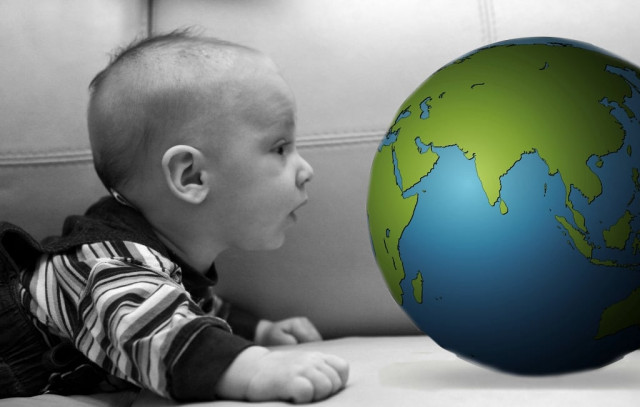Early injuries may predict later abuse in babies
Evaluating bruises and preventing severe child abuse later on could also lead to cost savings.

Sheets said everybody who is involved with a baby should know that bruises are not usually caused by normal handling. PHOTO: FILE
"In that group of definitely abused infants, 27.5 percent of them had that history of relatively minor injuries," said Dr. Lynn K. Sheets, the study's lead author from Children's Hospital of Wisconsin in Milwaukee.
"That should have and could have raised concerns about abuse, but for whatever reason did not," added Sheets, who is the hospital's medical director of child advocacy and protection services.
Previous studies had already found a link between minor injuries in babies too young to get around on their own and more serious abuse later on, according to the researchers. But no study looked at the number of abused babies who had a history of bruises.
For the new study, Sheets and her colleagues combined data on four groups of babies younger than 12 months old, who were evaluated for signs of abuse between March 2001 and October 2011 at the Children's Hospital of Wisconsin.
Two groups were watched over seven years, and definitely suffered abuse, according to the researchers. Those injuries included head trauma that's typically the result of shaking a baby.
Those groups were then compared to two other groups. One - followed for five years - was a group of babies that may or may not have suffered abuse. The other - followed for four years - was found to have not been abused.
Overall, 55 of the 200 babies who definitely suffered abuse had previous injuries observed by at least one parent. That compared to 8 of the 100 babies who may or may not have been abused, and none of the 101 babies who weren't abused.
The majority of bruises were on the babies' heads, followed by their arms and legs, stomachs and backs.
"If we recognize these, not only can we protect kids form serious injuries, but sometimes we can help families get the help they need to parent effectively without turning to abuse," said Dr. Andrea Asnes, an assistant professor of pediatrics at the Yale School of Medicine in New Haven, Connecticut.
"It's doesn't mean it's definitely abuse, but it warrants some serious looking," said Asnes, who was not involved with the new research. For example, doctors could use X-rays or CT scans to look for previous injuries, and refer to Child Protective Services if they suspect abuse.
'Everybody needs to know'
Sheets told Reuters Health everybody who is involved with a baby should know that bruises are not usually caused by normal handling, and questions and concerns should be raised if they're noticed.
"Not saying they're all abused, but everybody needs to know this if you're ever around a baby," she said.
According to the researchers, who published their findings in Pediatrics on Monday, 23 of the 55 babies with a history of bruises were reportedly seen by medical providers. But only some of those providers suspected abuse.
Asnes told Reuters Health some states already have laws that require doctors to call Child Protective Services if they suspect abuse.
"We have a lot of education to do with medical providers. Many medical providers will just see it as a bruise," said Sheets, who added that it may be the first sign of abuse.
Evaluating bruises and preventing severe child abuse later on could also lead to cost savings, write the researchers. Each case of child abuse, they write, is estimated to cost over $200,000 over a child's lifetime.
"This is really a hopeful message. This is an opportunity to prevent over a quarter or more serious abuse in infants. It's a huge opportunity. If we pay attention to these early sentinel injuries," said Sheets.



















COMMENTS
Comments are moderated and generally will be posted if they are on-topic and not abusive.
For more information, please see our Comments FAQ